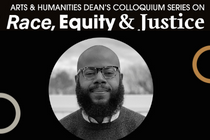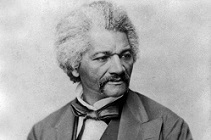By Kimmy Yam
As the midterm elections draw closer, a new survey shows a more complicated picture of the Asian American and Pacific Islander electorate than political parties have portrayed in the past.
The Asian American Voter Survey, released Monday, examined Asian Americans’ and Pacific Islanders’ attitudes about key issues leading up to the elections in November. It found that while hate crimes and education continue to be significant to Asian Americans, the group’s priorities also lie in issues like health insurance, the economy and the environment.
In the past, political parties haven’t sufficiently appealed to the electorate across all those issues, said Janelle Wong, a co-director of AAPI Data, the research organization that conducted the survey. And there’s still plenty of opportunity to activate Asian American voters.
“Most of Asian American politics covers two topics: hate crimes and affirmative action,” Wong said. “Many people, including candidates, think about Asian Americans as very single-dimensional or dual-dimension, but they don’t think about these complexities and how to really appeal to the broader Asian American agenda.”
For the survey, which was released as a joint effort of the organizations APIAVote, AAPI Data and Asian Americans Advancing Justice — researchers for Asian Americans Advancing Justice polled more than 1,610 registered Asian American voters across six of the largest Asian American ethnicities, in four languages. Similar to years past, respondents leaned left, with 54% reporting that they would vote for Democrats in both Senate and House races.
Asian Americans also showed consistency on major issues. The survey found that 88% of Asian American respondents ranked health care as “extremely important” or “very important” in deciding their votes in November. Jobs and the economy came in second, at 86% of the electorate, and crime came in third, at 85%. Gun control and the environment were also critical topics.
“What that tells me is that there are some enduring trends in this community,” Wong said. “People care about health care and the economy as much as they do about crime.”
However, outreach to and understanding of the group remain severely limited, Wong said. The survey found that while about two-thirds of registered voters say they plan to vote, the majority haven’t heard from either party. Fifty-two percent of Asian Americans had had no contact from the Democratic Party, and 60% had had no contact from Republicans.
“Asian American communities, despite the progress we have made and increasing political power, are still being ignored by many politicians, to their detriment,” Christine Chen, the executive director of APIAVote, wrote about the survey in a statement.
Nainoa Johsens, Republican National Committee spokesperson and director of APA Media, its AAPI communications arm, told NBC News they’ve engaged with AAPI voters through a number of avenues.
“Under the leadership of Chairwoman Ronna McDaniel, the RNC has been on the ground months before Democrats to engage with the Asian American community through our Asian Pacific American community centers and engaging with AAPI voters with events like dance classes, karate lessons, game nights, and potlucks," Johsens said.
Eric Salcedo, director of AAPI outreach at the Democratic National Committee, said that the party has invested "significantly" in outreach.
“Asian Americans are the fastest-growing coalition group, and communicating to these voters is central to Democrats’ efforts to protect and expand our majority," Salcedo said. "The DNC has made significant investments in multi-platform outreach to Asian American, Native Hawaiian, and Pacific Islander communities to reach these voters where they are ahead of the midterm election.”
The president of the Association for Asian American Studies, Pawan Dhingra, a professor of sociology and American studies at Amherst College, said the parties have flattened the concerns of the Asian American electorate.
It’s as if they talked to Latinx and only talked about immigration, when in fact other issues matter as much or more,” he said. The economy and issues facing small-business owners, reproductive rights and inflation are all also Asian American and Pacific Islander issues, Dhingra said, and they need to be seen as such. And to further activate the electorate, politicians will have to demonstrate that they understand how the population actually experiences those issues “whether by being local in their approach, using non-English languages, recognizing the histories of immigrant groups, et cetera,” Dhingra said.
“Anti-Asian hate crimes are part of the puzzle but not all of it,” he said.
Hate crimes do continue to be a concern for Asian Americans and Pacific Islanders, Wong said. Those who worry “very often” about hate crimes plan to support Democrats over Republican House candidates by a 3-to-1 ratio.
However, opinions around the issue are complicated, Wong said. According to the survey results, respondents were more divided in their assessment of the two parties’ handling of crime, indicating that they don’t view the topic as a partisan one, she said. Wong also said their views don’t necessarily match an aggressive push for carceral solutions that some activists have perpetuated.
“Political power is really about who is organized and which voices are aligning with broader narratives and how are those outside of the Asian American community who have political power framing these issues,” Wong said. “There is a divide between mass public opinion, the beliefs of everyday Asian Americans, because this survey captures everyday registered voters’ rights versus activists.”
The survey found that 50% of respondents agreed with shifting spending from law enforcement to “programs that address economic and social issues for minorities.” About half of that percentage, 24%, disagreed with such a shift. Wong also said that Asian American voters showed concern for racism against communities of color more broadly and that 73% supported including Asian American and nonwhite history in public school curriculums.
“There is, and always has been, this willingness to join in the broader coalition of people of color when it comes to racial equity, despite the headlines that we still see,” Wong said.
She added, “We’re not seeing your typical, reactionary response, that being fearful or worried or concerned about crime means that people want to take up an aggressive stance either with regard to law enforcement or with regard to guns.”
A separate study released last week by the organization Stop AAPI Hate similarly found that 53% of Asian Americans and 58% of Pacific Islanders said education was the most effective response to hate crimes. Community-based solutions and civil rights legislation and enforcement were also highly favored. A minority of respondents, on the other hand, saw more law enforcement as an effective solution, at 30% of Asian Americans and 21% of Pacific Islanders.
The Asian American perspective on education also continues to be misunderstood, Wong said. While Asian Americans are often cast as opponents of race-conscious admissions, with candidates often trying to appeal to the group through that perspective, the survey found that the majority of respondents support affirmative action programs. The hyperfocus on affirmative action and hate crimes, Wong added, could also come from a long-standing perpetuation of both model minority and perpetual foreigner stereotypes.
But across many issues, Asian Americans have exhibited consistencies that point to stronger support for more government and a more cohesive political identity. For example, the vast majority of the electorate supports stricter gun laws, a pathway to citizenship for undocumented immigrants and legislation to reduce climate change.
“There is a foundation to build on,” Wong said. “What is still uncertain is how, and to what extent, will activists be able to really capture the attention of Asian Americans around these issues?”







